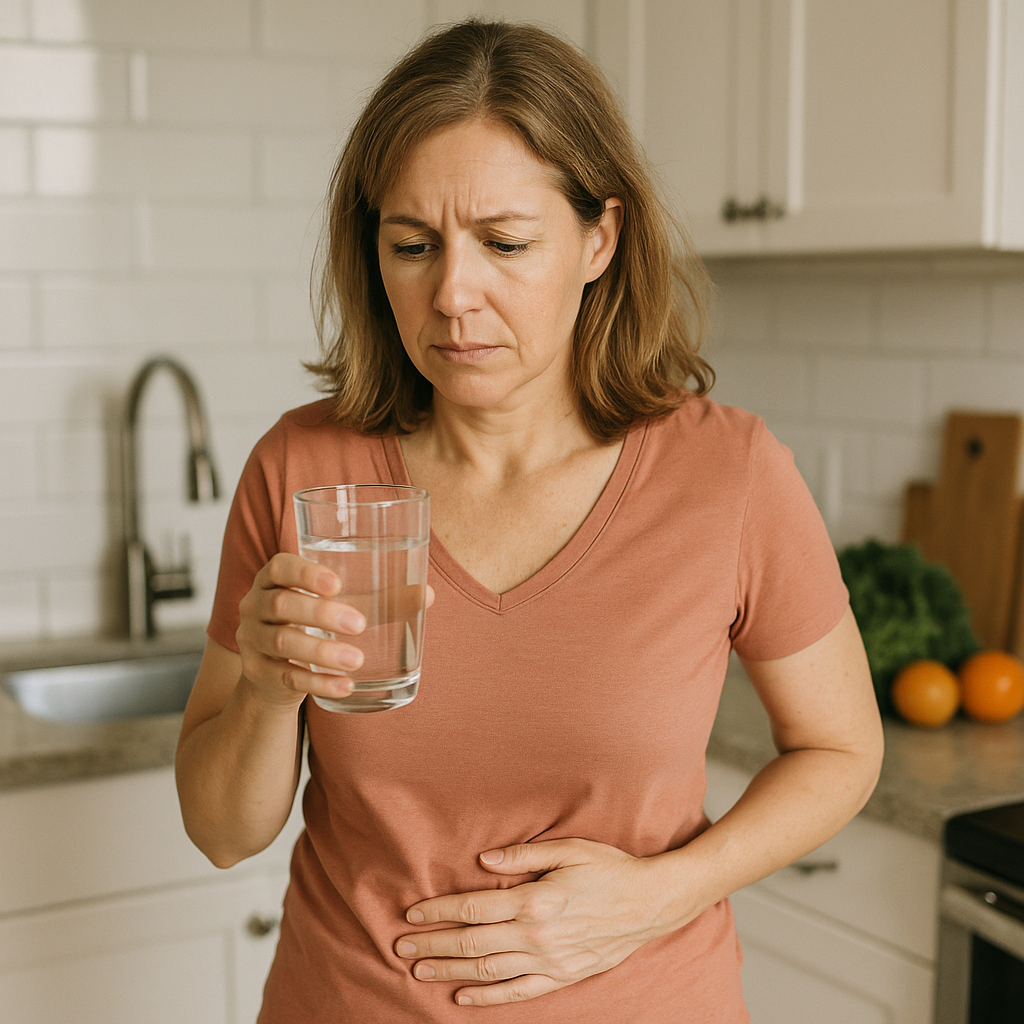Ask Ayurvedic doctor a question and get a consultation online on the problem of your concern in a free or paid mode. More than 2,000 experienced doctors work and wait for your questions on our site and help users to solve their health problems every day.
How to Prevent Kidney Stones: Ayurvedic Practices, Diet, and Lifestyle Tips

Kidney stones are one of those things you really don’t think about until you’re curled up in pain, wondering if something inside you cracked. Trust me — the agony is not something you forget. That’s why figuring out how to prevent kidney stones becomes pretty important if you’ve ever had one... or know someone who has. Even if you're just here because you heard "orange juice" might be involved — welcome. You're in the right place.
This article isn’t just another “eat less salt, drink more water” piece. We’re diving into a mash-up of Ayurvedic wisdom, real-world experience, and good old nutritional common sense. Whether you're curious about foods to avoid with kidney stones, supplements that actually help, or want to know the best way to prevent kidney stones, we’ll get into all of it — with enough practical detail that you might even start looking at your water bottle differently.
Why Kidney Stones Form and How Ayurveda Explains It
So, what’s going on inside your body that causes these tiny, jagged, evil little rocks?
From a Western perspective, kidney stones form when your urine becomes supersaturated with minerals like calcium, oxalate, and uric acid. They crystallize and clump together — like some kind of nasty DIY mineral project — and voilà: pain.
But in Ayurveda, the explanation is... more poetic (and honestly, kind of comforting). Stones are considered a manifestation of an imbalance in Vata and Kapha doshas, especially when the digestive fire — Agni — is weak. This leads to the accumulation of toxins (Ama) and improperly processed minerals, which then lodge in the urinary tract.
Translation? If your digestion is sluggish, your hydration is off, and your daily routine is out of whack, you're more likely to get stones.
Now, does that mean if you meditate every morning and sip on warm cumin water, you’re totally immune? Not exactly. But Ayurveda teaches that consistent, aligned habits can make a huge difference — and that’s kind of empowering.

Diet to Prevent Kidney Stones and What to Avoid
Let’s be honest — the internet is full of conflicting advice. Some say eat spinach. Others scream: avoid it like it’s poison. So, what’s the real story when it comes to your diet?
Well, it depends on the type of stone, which is very annoying, but true. Still, there are a few pretty universal rules.
Foods to Avoid with Kidney Stones
If you’re serious about preventing kidney stones, you’ll want to cut down on:
-
Oxalate-rich foods: spinach, beets, rhubarb, nuts (especially almonds), and dark chocolate. I know — heartbreak.
-
Too much animal protein: red meat, organ meats, and even excessive eggs can raise uric acid levels.
-
Salt: It increases calcium in urine. High sodium + low hydration = prime conditions for stone formation.
And weirdly? Too much vitamin C (like in mega-dose supplements) can increase oxalate production. That’s one of those curveballs most people don’t see coming.
Foods That Prevent Kidney Stones and Support Detox
Alright, let’s talk about what you can eat — and actually should eat — if preventing kidney stones is on your radar. Which, if you're reading this, it probably is.
Some of the best foods that prevent kidney stones are surprisingly simple. Think fiber, water-rich veggies, and alkalizing fruits. Nothing fancy. No powdered miracle berry from some obscure island. Just stuff your grandmother would approve of.
-
Citrus fruits — especially lemons and oranges — are kind of the unsung heroes here. The citric acid in them binds to calcium in the urine, reducing the risk of stone formation. So yes, that fresh-squeezed orange juice? Totally worth it. Just, you know, make sure it’s not drowning in added sugar.
-
Barley water — a classic in Ayurveda. It’s a diuretic and is believed to "scrape" toxins from the urinary system.
-
Celery, cucumber, watermelon, and ash gourd — super hydrating and help keep urine dilute, which is crucial. (Plus, honestly? Watermelon on a hot day feels like it’s detoxing you. Probably placebo, but who cares.)
-
Whole grains and legumes — gentle on the kidneys and great for digestion, which Ayurveda says is your first line of defense against stone formation.
Also, don’t sleep on calcium-rich plant foods like broccoli and chia seeds. Weirdly enough, not getting enough calcium can make oxalate levels spike — which is the opposite of what you want. Balance, as always, is key.
Role of Orange Juice and Hydration in Kidney Stone Prevention
I know what you’re thinking: Wait... orange juice? I thought that was acidic — isn’t acid bad for stones?
It’s confusing. But here’s the deal: orange juice, while acidic outside the body, has an alkalinizing effect once digested. That means it can help raise urinary pH, which can lower the risk of certain stones, particularly uric acid stones. Plus, the citric acid binds with calcium and helps it flush out before it can stick around and form crystals.
But don’t just chug a carton and call it a day. Hydration overall is the absolute cornerstone of kidney stone prevention. And not just any hydration — we’re talking steady, consistent water intake throughout the day. Not a last-minute gallon at night because you forgot.
Some real talk: If your urine is pale yellow or almost clear, you’re probably good. If it looks like apple juice, we have a problem.
Pro tip? Add a splash of lemon or orange juice to your water. You get a double benefit — hydration + citric acid. Also makes you feel like a health influencer, which is a nice bonus.

Natural and Ayurvedic Ways to Prevent Kidney Stones
So far, we’ve talked about diet and hydration, but Ayurveda adds another layer — a kind of holistic vibe that pulls everything together. The idea isn’t just to avoid certain foods, but to live in a way that supports your whole system, so kidney stones don’t even get a chance.
Let’s get into it.
Herbal Remedies and Supplements to Prevent Kidney Stones
Now, before you roll your eyes at herbal tea solutions — listen. Some of this stuff actually works. Not in a “take this pill and never worry again” kind of way, but more like steady maintenance. And often, it’s the consistency that matters.
Here are a few Ayurvedic herbs and supplements that are commonly used to prevent kidney stones:
-
Gokshura (Tribulus terrestris) – This one’s a kidney tonic. It’s often used to soothe the urinary tract and promote easy urination. Think of it as WD-40 for your kidneys.
-
Varuna (Crataeva nurvala) – Traditionally used for breaking down existing stones and preventing new ones from forming.
-
Punarnava (Boerhavia diffusa) – Known for reducing inflammation and water retention, and helping the kidneys detox naturally.
-
Chanca Piedra – Not technically Ayurvedic, but it’s a tropical plant that literally means “stone breaker.” A lot of people swear by it. Jury’s still out on the science, but anecdotal evidence is strong.
You can find these as teas, capsules, or powders. Just make sure the brand you’re using is reputable — Ayurvedic stuff is amazing, but quality control matters.
Also: magnesium and potassium citrate supplements have been shown to help some people, especially those with recurrent stones. But check with a doctor before starting — supplements to prevent kidney stones are not one-size-fits-all.
Daily Routine (Dinacharya) for Healthy Urinary Flow
Ayurveda is big on routine — not rigid, robotic routine, but flowy, body-honoring rhythms. Here’s a version of a daily routine that supports kidney health:
-
Wake early (before sunrise if possible). This aligns your body with natural detox cycles.
-
Warm water with lemon or cumin seeds first thing — gets digestion going.
-
Light breakfast — nothing greasy or heavy.
-
Stay active — even just walking helps circulation and lymph drainage.
-
Hydrate steadily throughout the day — don’t wait until you’re parched.
-
No late-night eating — your body needs the night to repair, not digest.
This isn’t about being perfect. But if you’re doing most of these most of the time, your body notices.
What Helps Prevent Kidney Stones in Recurring Cases
If you’ve had more than one stone, you know how real the paranoia can get. Every ache is a red flag. The good news? Recurrence can often be prevented with a multi-angle approach:
-
Diet tailored to your stone type (a urologist can help here)
-
Regular hydration
-
Strategic supplements (again, based on type)
-
Consistent lifestyle habits
-
Sometimes, even medication to prevent kidney stones, like thiazide diuretics or potassium citrate, might be necessary — especially if dietary changes alone haven’t worked.
Bottom line? You’re not doomed. You just need a plan.
Conclusion
Learning how to prevent kidney stones isn’t about avoiding one magical food or drinking orange juice once a week. It’s about understanding your body, tuning into what throws you off balance, and adjusting before things go south.
Whether you lean Ayurvedic, scientific, or a bit of both, the good news is this: kidney stones are largely preventable. It takes awareness. Some consistency. Maybe a little herbal tea. And yes — a lot of water.
Because at the end of the day, the best way to prevent kidney stones? It’s showing up for your body before it screams for your attention.
FAQs
What are the number 1 causes of kidney stones?
Dehydration tops the list, followed by high intake of oxalate-rich foods, too much salt, and imbalanced calcium consumption. For many, it's a combo of factors — not just one villain.
Are kidney stones 100% preventable?
Not always. Genetics play a role, and some people are more prone to forming stones. But for most, stones can be drastically reduced — even eliminated — with proper diet, hydration, and lifestyle.
What triggers a kidney stone to move?
Movement can be triggered by dehydration, vigorous exercise, or just random shifts in the body. Sometimes they pass silently; other times… well, you’ll know.

